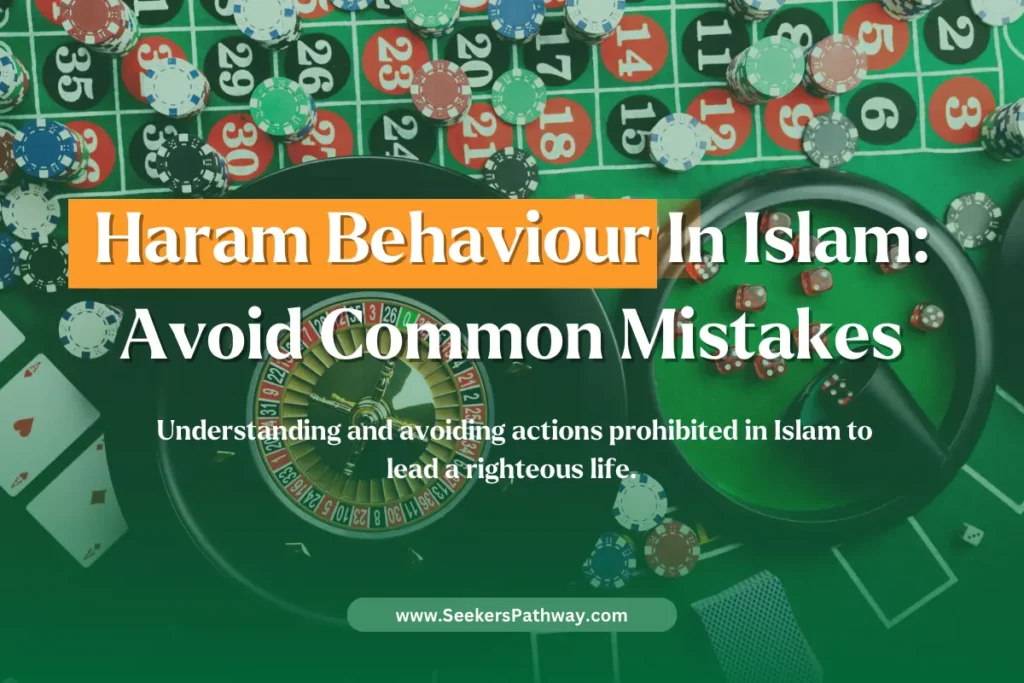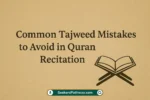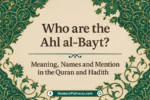In Islamic teachings, “haram” refers to everything forbidden by Allah, be it actions, habits, or things. These teachings aim to preserve spirituality and morality, ensuring a harmonious society. To follow the Islamic way of life, individuals must be aware of and avoid haram activities.
The Quran and Hadith provide guidance on food, finances, behavior, and interpersonal relationships. A common example of haram is the consumption of prohibited food and drinks. Alcohol and drugs, for instance, are strictly forbidden due to the harm they cause to individuals and society.
The Quran states:
“O you who have believed, indeed, intoxicants, gambling, [sacrificing on] stone altars [to other than Allah], and divining arrows are but defilement from the work of Satan, so avoid it that you may be successful.”
Similarly, pork and improperly slaughtered meat are not allowed. Muslims are encouraged to ensure their food is halal when dining out or shopping.

The Quran further declares:
“Forbidden to you (for food) are: dead meat, blood, the flesh of swine, and that on which hath been invoked the name of other than Allah.”
In financial matters, interest (riba) is strictly prohibited as it fosters inequality and unfairness, which conflict with Islamic principles.
The Quran warns:
“Those who consume interest cannot stand [on the Day of Resurrection] except as one stands who is being beaten by Satan into insanity.”
Instead, Muslims are urged to utilize Islamic banking that complies with Sharia principles. Honesty and fairness in business dealings are also vital. Practices like cheating, lying, or bribery are considered haram as they harm others and breach trust.
Prophet Muhammad (peace be upon him) emphasized:
“He who deceives us is not one of us.”
Fair business practices are ethical and a form of worship in Islam. Haram extends to personal habits and social conduct. Modesty, both in appearance and actions, is a cornerstone of Islamic values. Wearing overly revealing or flashy clothing is discouraged as it attracts unnecessary attention and contradicts humility.
The Quran advises:
“And tell the believing women to reduce of their vision and guard their private parts and not expose their adornment except that which [necessarily] appears thereof.”
Modesty also involves refraining from harmful speech, such as gossiping, lying, or spreading rumors, as these actions can damage relationships and breed negativity.
The Quran states:
“O you who have believed, avoid much assumption. Indeed, some assumption is sin. And do not spy or backbite each other.”
Simple practices like avoiding gossip and thinking before speaking help cultivate modesty. Another key aspect of Islamic life is prayer (salah), which requires commitment. The five daily prayers are more than rituals; they serve as a means to connect with Allah and instill discipline. Neglecting prayers without a valid reason is a serious transgression.
Prophet Muhammad (peace be upon him) said:
“Between a man and shirk and kufr there stands his giving up prayer.”
Planning your day around prayer and designating a special place for it can help maintain consistency. Avoiding haram takes effort, knowledge, and support. The first step is learning what halal (permissible) is by studying, attending Islamic lectures, or consulting knowledgeable individuals.
The Quran encourages:
“So ask the people of the message if you do not know.”
Surrounding yourself with good, like-minded friends can provide motivation and accountability. Regular self-reflection helps identify areas for improvement, and seeking guidance from scholars or community leaders can resolve uncertainties.
Ultimately, avoiding haram is not just about following rules; it is about personal growth, self-discipline, and living consciously. Staying within Allah’s boundaries allows you to fulfill your religious obligations while fostering a just and compassionate society. Every effort to avoid haram strengthens your connection with Allah and brings peace to your heart. Though the journey may be challenging, the rewards in both this world and the hereafter are invaluable.










